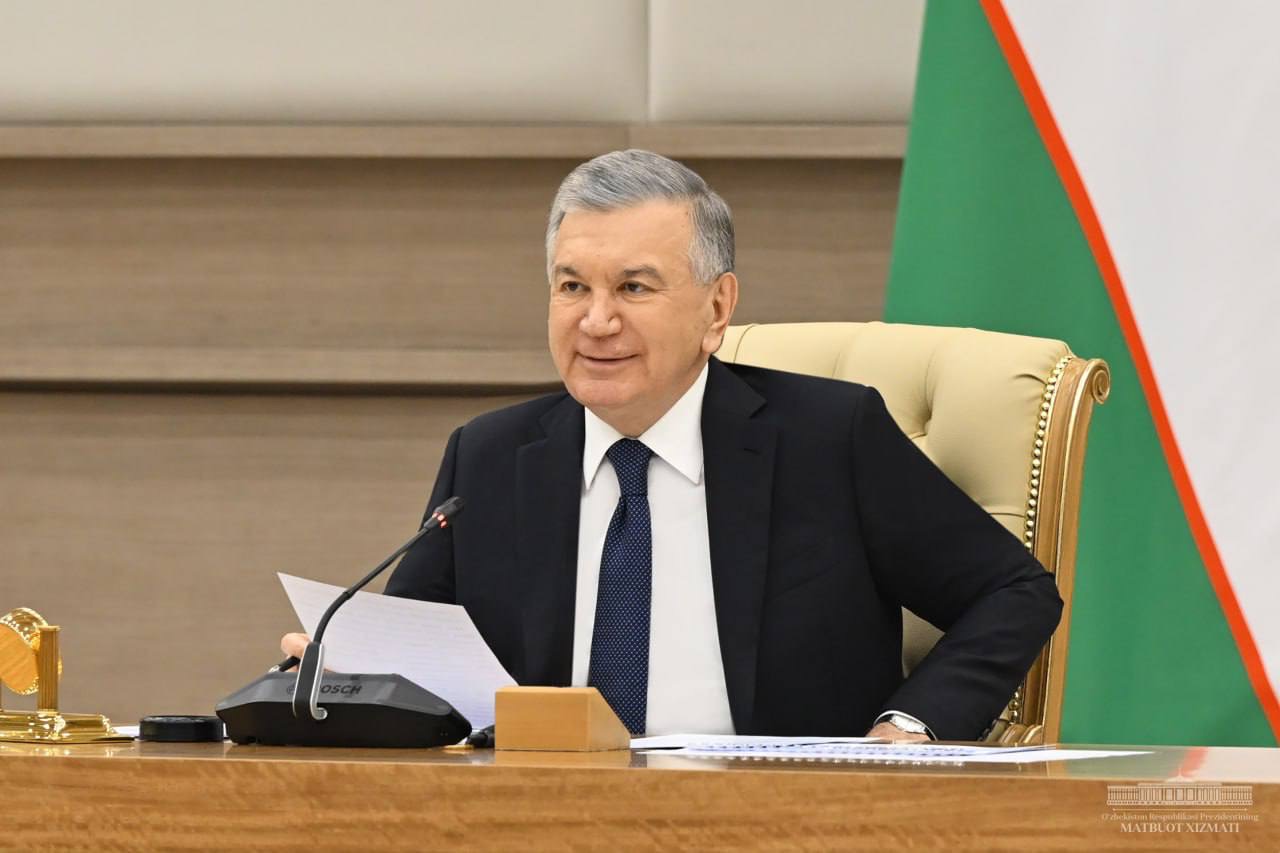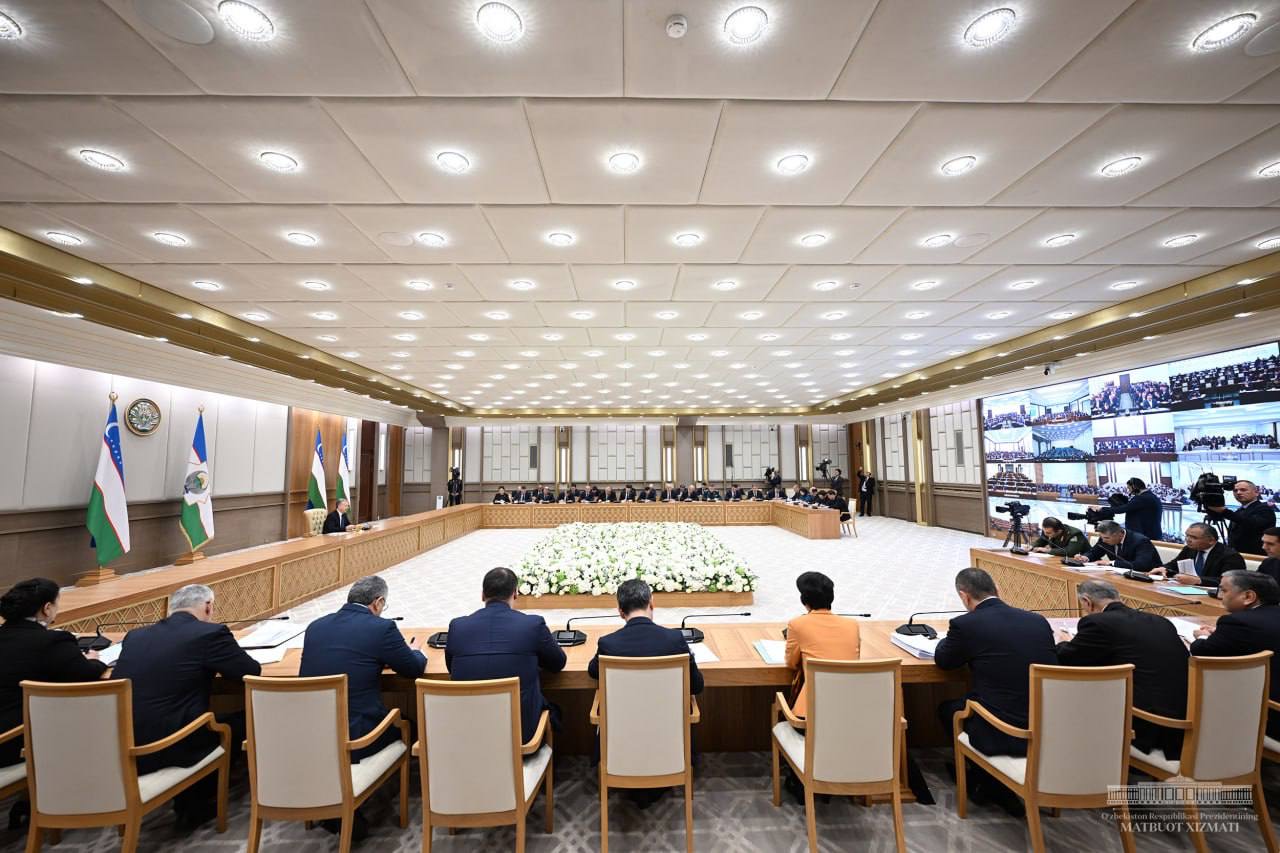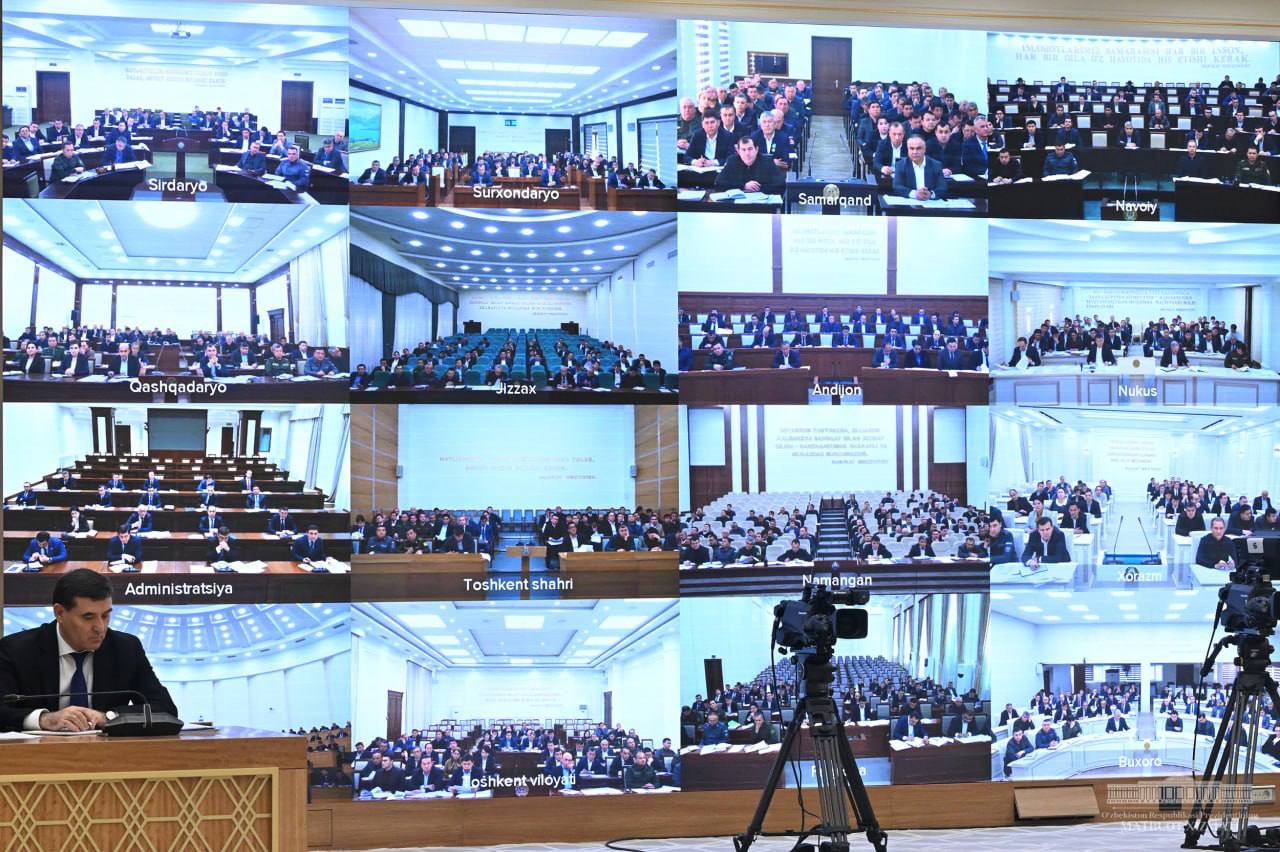President of Uzbekistan Shavkat Mirziyoyev chaired a video conference meeting on December 16, with the participation of banking institutions to discuss strategies aimed at ensuring employment and improving the economic situation of the population, particularly in rural communities known as makhallas.

In recent years, the decentralization of banking operations to local areas has shown significant results. For instance, in the Uychi district of Namangan region, banks have supported 3,200 active clients, helping to create 9,000 permanent jobs and lift 6,000 people out of poverty. Similar projects have been successfully launched in other regions: in Saikhunabad district of Syrdarya, 12,000 people learned how to generate income from their homes; 13,500 jobs were created in Zarbdor district of Jizzakh; and in Gijduvan district of Bukhara, 28,000 jobs were added, pulling over 10,000 people out of poverty.
These initiatives, known as pilot programs in Uychi, Saikhunabad, Zarbdor, and Gijduvan, have benefited 3.3 million people, ensuring them a steady income. The number of officially employed individuals has also reached an all-time high of 10.5mn people. Furthermore, unemployment has fallen to below 5% in 57 districts across the country, including Khojaly, Asaka, and Vobkent.
The president emphasized that 2025 would be crucial in reducing poverty and ensuring further employment opportunities. He called on the Central Bank and local financial institutions to expand successful programs and increase their support for citizens.
Over the last six years, the Family Entrepreneurship Program has helped 750,000 people repay loans and establish profitable businesses, with 58,000 opening new enterprises. Banks are now tasked with assisting these clients as they transition into small and medium-sized businesses. Under the "Small Business Support" program, unconditional loans of up to UZS 300mn ($23,316) will be provided to create 1.5mn jobs in the coming years.

In a major policy shift, the People's Bank has begun offering loans up to UZS 50mn ($3,886) without additional documentation or collateral as part of a "financial inclusion" initiative with the Asian Development Bank. This approach is expected to help 250,000 people and generate $1bn in loans next year.
Cooperatives, already established in 27 districts with the help of active entrepreneurs, are showing positive results. In 2025, similar cooperatives focusing on fishing, livestock, and beekeeping will be established in 30 districts, with UZS 500bn ($38.9mn) allocated to these projects.
The government is also focused on supporting startup projects that attract investment and generate employment. State banks will create venture companies, allocating a total of $50mn to local startups. These projects will help create new businesses and support job growth.
Additional strategies include attracting experienced entrepreneurs to difficult districts, offering soft loans for their projects, and providing infrastructure funding. This initiative aims to create 1.3mn profitable individuals. Entrepreneurs have proposed 3,500 projects that will generate UZS 31 trillion ($2.4bn) in investment and create 200,000 new jobs, with UZS 1 trillion ($77.7mn) allocated for infrastructure next year.
Land efficiency is also being addressed, with 85,000 hectares of low-yielding land being consolidated and leased to entrepreneurs. A similar approach will be taken for 100,000 hectares of land to be allocated next year. The goal is to increase productivity and create more employment opportunities.
President Mirziyoyev also highlighted the potential of 60 cities and districts to become free from unemployment and poverty. To achieve this, 2mn people must be employed and 417,000 families lifted out of poverty by 2025. Banks are expected to raise $6bn from external sources to finance these initiatives, as well as increase population deposits to $11bn.

Additionally, microfinance and factoring services, amounting to UZS 5.5 trillion ($427.5mn), have been successfully implemented this year. This framework allows state-owned banks to open their own microfinance companies and attract foreign investment.
The meeting concluded with a focus on addressing the challenges facing the banking sector. For example, banks hold 3,000 real estate assets, which could generate additional resources and reserves for 150,000 jobs if sold. The government has decided to allow banks to sell these assets directly at market value.
In order to expedite the collection of credit debt, the president called for changes to legislation, prioritizing bank rights over collateral and enabling quicker property sales.
A new system will also be introduced for coordinated efforts between district khokimiyats (local government bodies) and banks in makhallas. Local authorities will provide land and infrastructure for projects, while banks will support entrepreneurs, solve problems, and employ the unemployed. The establishment of mahalla bankers will further support these efforts by helping local people turn ideas into viable businesses.
The meeting concluded with goals for 2025: to make over 5mn people profitable and lift 1.5mn people out of poverty, further demonstrating the active role that banks will play in ensuring long-term economic growth and stability.
Follow Daryo's official Instagram and Twitter pages to keep current on world news.
Comments (0)